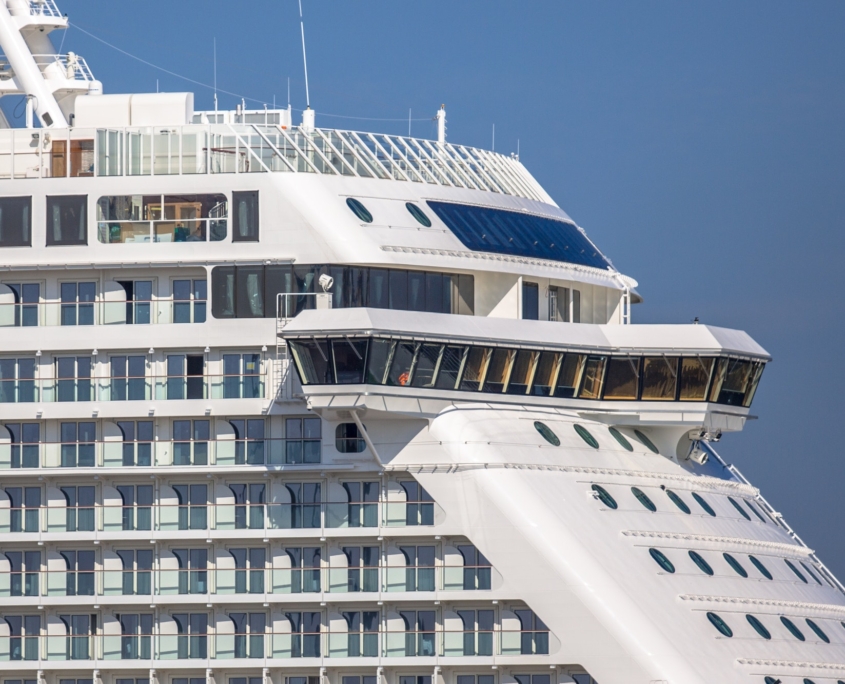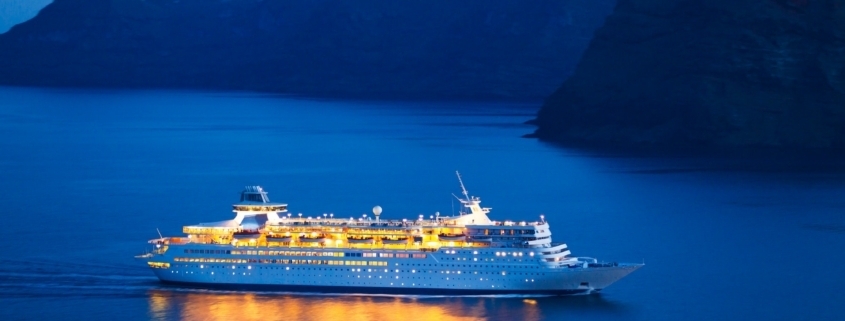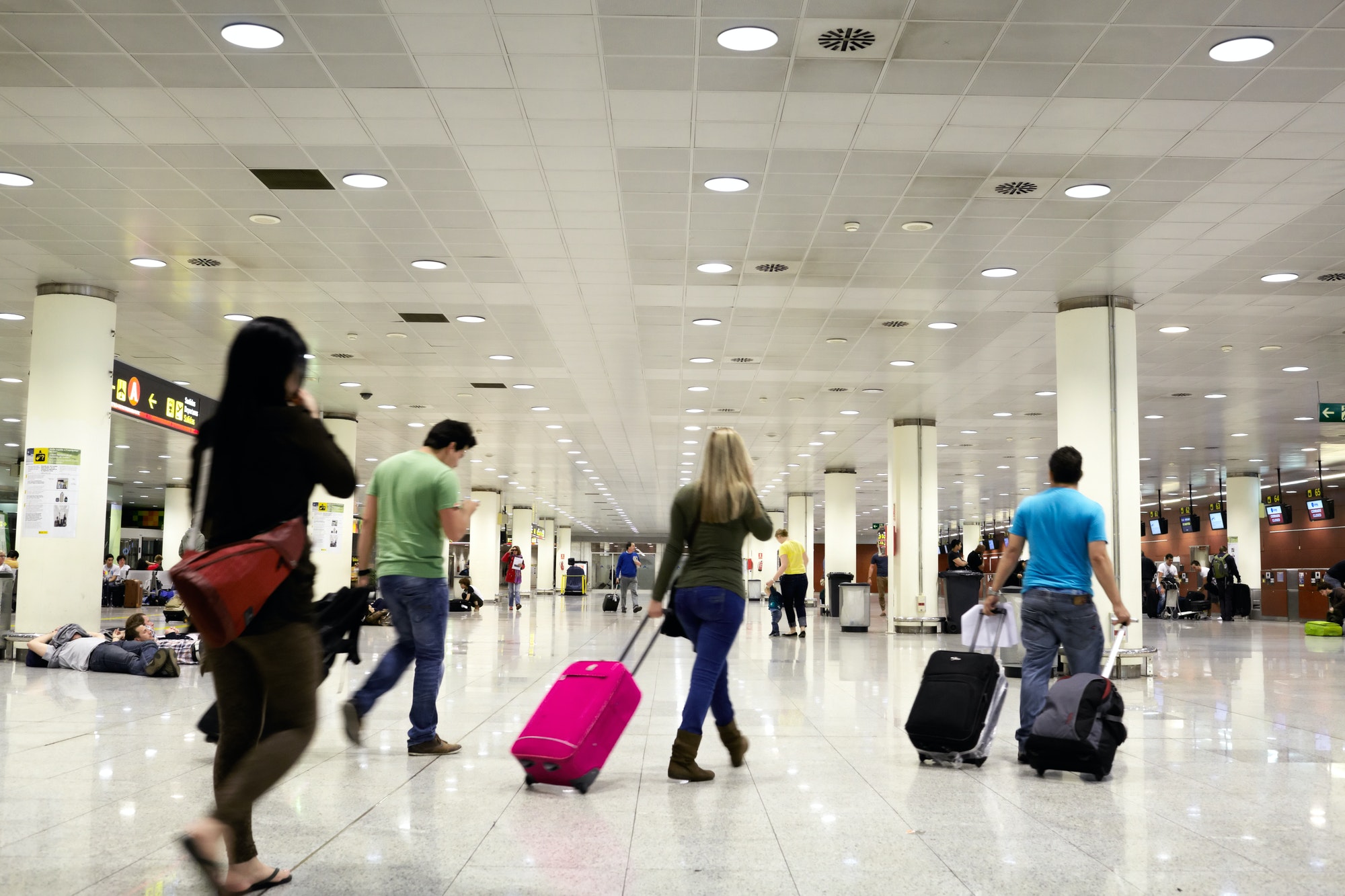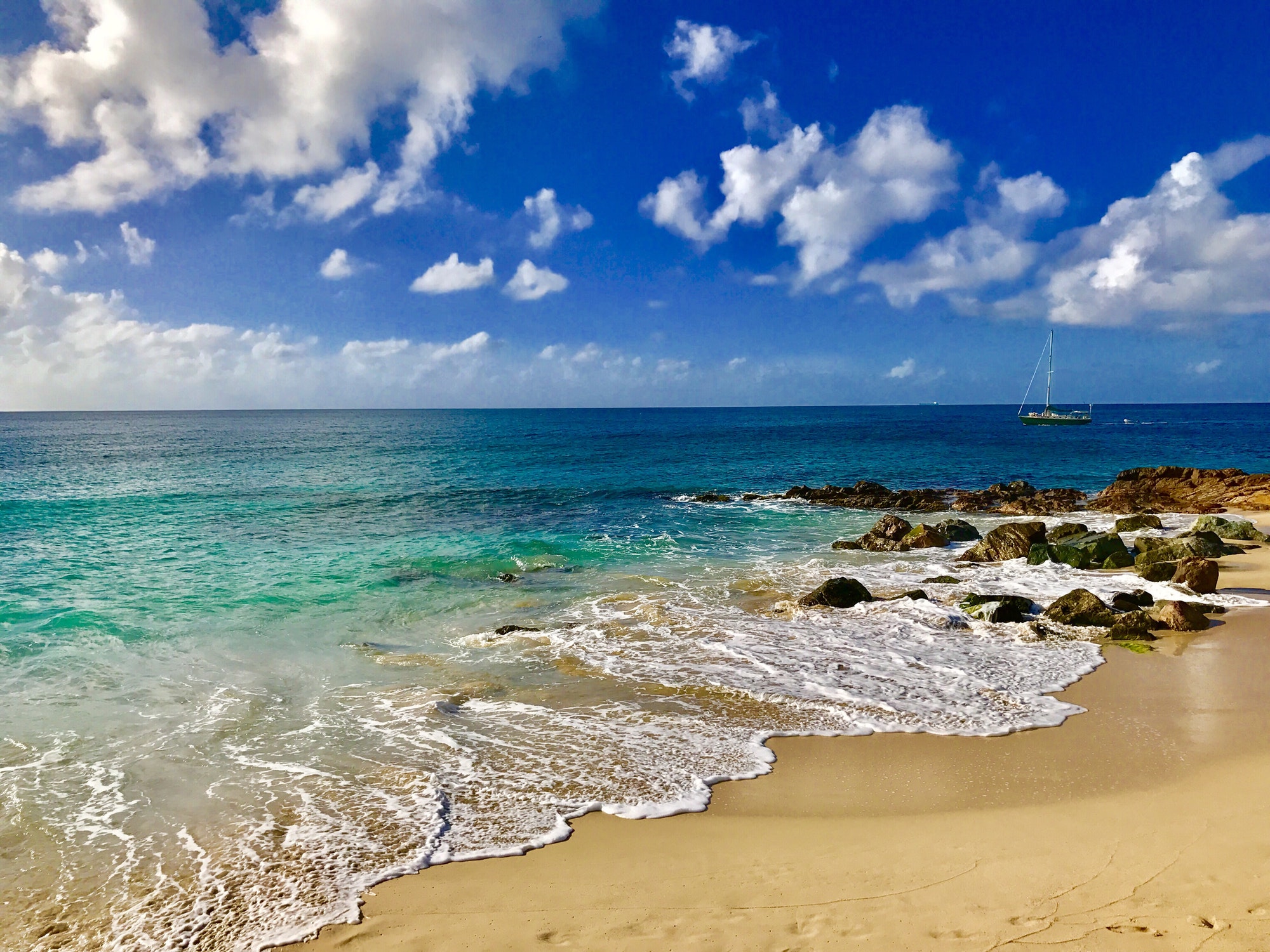Danger at Sea? Report Highlights Poor Air Quality Aboard Cruise Ship
Breathing in the fresh salt air on an ocean voyage feels invigorating. But can the sea air be harmful? The Naturschutzbund Deutschland (NABU), a German environmental association, thinks so. Passengers on deck might be inhaling harmful pollutants in concentrations 60 times higher than in land settings. For the French documentary television series Thalassa, a journalist sampled the air at various locations on deck shortly after a cruise ship left Marseille. NABU analyzed the samples.
Shipboard Air
· The concentration of harmful ultra-fine particles was up to 200 times higher than in natural, fresh air surroundings.
· The harmful air was 20 times worse than in city centers of some port cities such as Marseille, Hamburg and Barcelona.
· A fresh sea breeze – not from a cruise ship – typically contains 1,000 to 2,000 harmful particles. A sea going sample taken over a 50-minute time period revealed 60,000 particles per cubic centimeter of harmful pollutants.
· The sun deck and jogging decks had the highest concentration of air pollutants.
· Harmful pollutants include dust and soot from the cruise ship funnels as well as nitrogen oxides and heavy metals emitted by the combustion of marine diesel fuel and heavy oil.
· Diesel exhaust is as carcinogenic as asbestos, according to the World Health Organization.
· The German Lung Association and the German Pneumologists Association have warned passengers against lingering on a ship’s open decks.
· Cruise ships could improve air quality by switching to less polluting fuels – road diesel or natural gas – and by installing particulate filters.

Representatives of the cruise industry questioned the accuracy of the findings and dismissed the study for its small sample. The German director of the Cruise Lines International Association (CLIA) questioned the study’s methodology and results, saying that the cruise industry has invested $1 billion in new technologies and cleaner fuels to reduce ship air emission.
NABU’s findings, even though the study was far from comprehensive, give cruisers something to ponder. Did the ship sampled employ anti-pollution mechanisms and use less contaminating fuels? Is the sample indicative of what passengers encounter throughout a voyage, or is rate of 60 times more polluted than land areas only a problem soon after sailing?
In any case, savoring the sea air from a deck chair is one of the prime pleasures of an ocean voyage. But not if the air may be harmful. Cruisers and environmentalists should follow this issue, and, if necessary, advocate for cleaner air at sea.


 Dentist's Money Digest
Dentist's Money Digest Dentist's Money Digest
Dentist's Money Digest Dentist's Money Digest
Dentist's Money Digest Dentist's Money Digest
Dentist's Money Digest Dentist's Money Digest
Dentist's Money Digest Dentist's Money Digest
Dentist's Money Digest Dentist's Money Digest
Dentist's Money Digest Dentist's Money Digest
Dentist's Money Digest